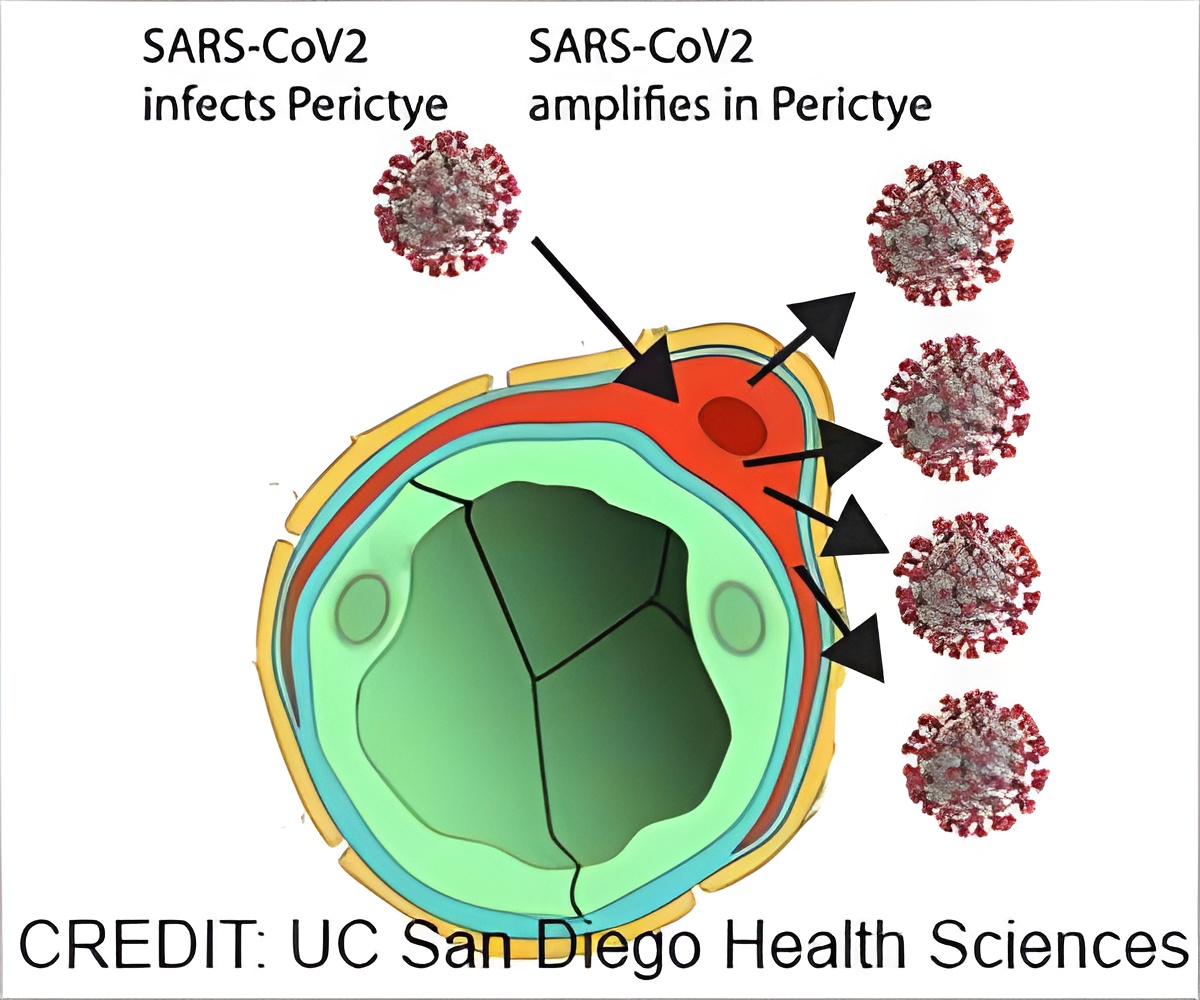The nervous system is frequently impacted by COVID-19 directly or indirectly. Scientists analyzed and explained how SARS-CoV-2 infects brain cells called pericytes.

‘SARS-CoV-2 can infect pericytes and multiply within them. From there, the viruses disseminate among astrocytes and impact the neuronal system.’





"The prospect of COVID19-induced brain damage has become a primary concern in cases of ’long COVID,’ but human neurons in culture are not susceptible to infection. Prior publications suggest that the cells that make the spinal fluid could become infected with SARS-CoV-2, but other routes of entry seemed likely," said senior author Joseph Gleeson. The Neurovascular unit is engaged in regulating cerebral blood flow and blood-brain barrier function. It consists of many specialized cells, including pericytes, astrocytes, and neurons.
Three-Dimensional Brain Model
Pericytes that wrap around blood vessels of the brain contain the SARS-CoV2 receptor. Taking this in mind, researchers from the University of California, San Diego introduced these cells into 3D-brain cell cultures and created a complex model of the neurovascular unit of the human brain.
Advertisement
Alternative Pathway
Advertisement
Although the research revealed potential invasion of SARS-CoV-2 into the human CNS, other evidence showed that most neural cells have little to no capacity for SARS-CoV-2 infection. Yet, the research provides a robust model to study the effects of novel coronavirus on the neuronal network.
Source-Medindia










